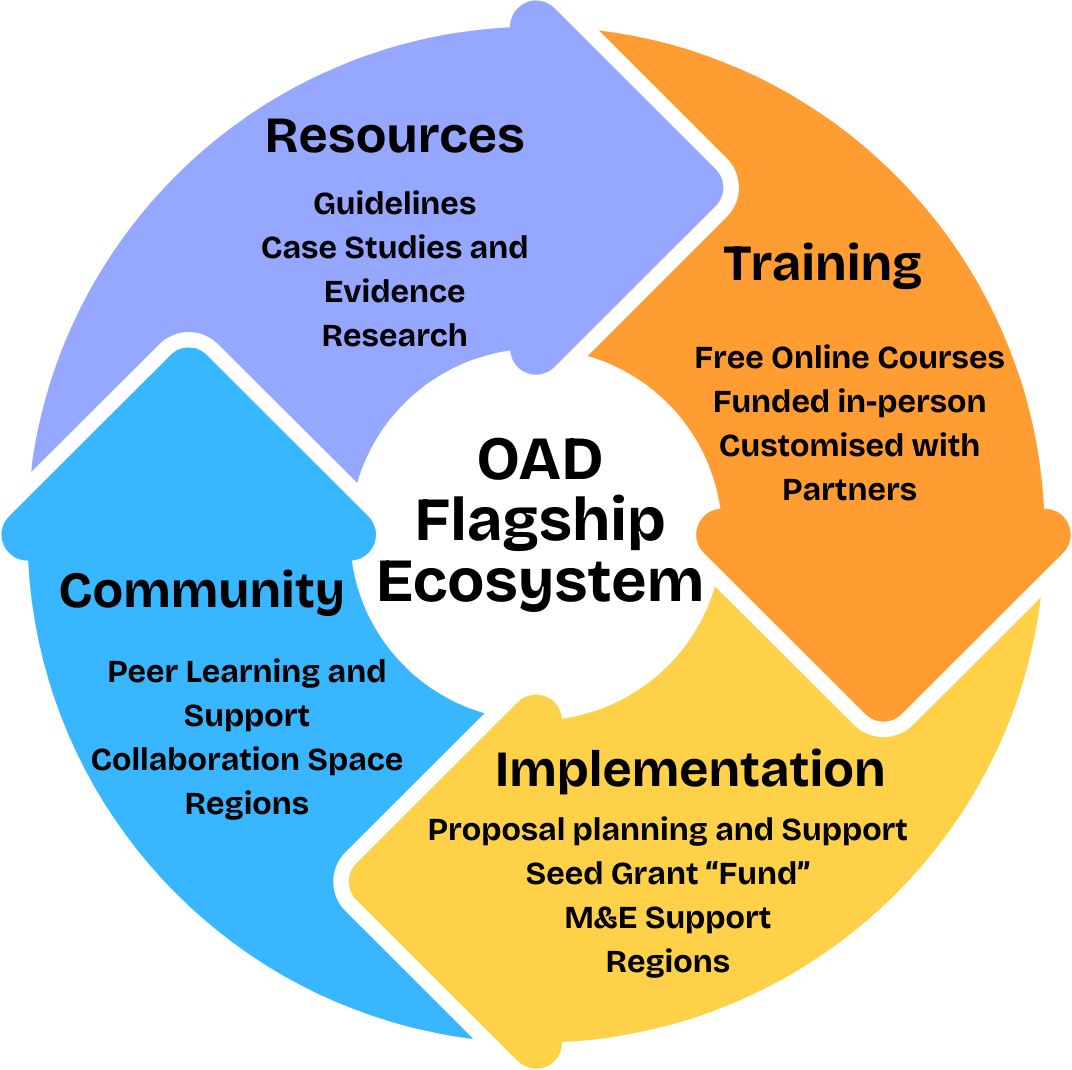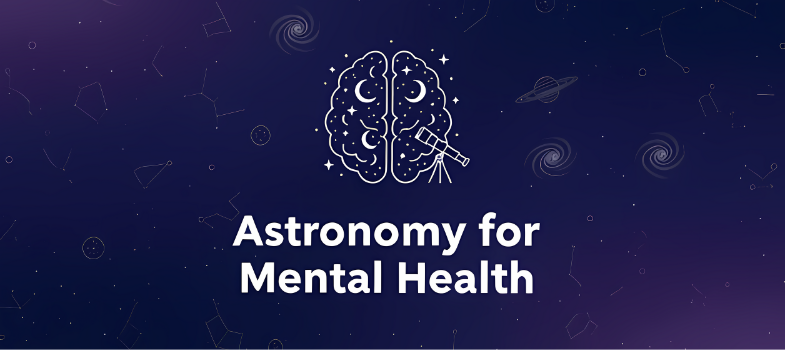Moving forward
The Astronomy for Mental Health and Well-being Flagship Project is part of the Office of Astronomy for Development’s mission to connect science with society and advance sustainable development. This flagship explores how the wonder of the night sky can be used to support mental health, well-being, and social connection.
The work is built around four pillars: Resources, Training, Implementation, and Community. Together, these pillars form a dynamic ecosystem that equips people with the tools, knowledge, and networks needed to design impactful initiatives and create positive change.
Resources
The flagship has developed a growing collection of openly accessible resources that support individuals, organizations, and institutions in creating Astronomy for Mental Health and Well-being initiatives.
These resources are designed for both newcomers and experienced practitioners. They provide practical guidance, activity templates, case studies, and safeguarding frameworks to ensure initiatives are safe, inclusive, and effective.
Outputs are also generated through the OAD’s Annual Call for Proposals, where supported projects produce toolkits, training materials, and multimedia content. Collectively, these resources contribute to a shared library of knowledge that strengthens the field and inspires new initiatives worldwide.
Training
Capacity building is central to the flagship. To make astronomy-based well-being activities sustainable, the project equips people with the knowledge and skills to design and deliver them.
One of the key tools is this online course, which introduces participants to the fundamentals of Astronomy for Mental Health and Well-being and provides step-by-step guidance for practice.
Beyond the course, training also takes place in-person through workshops run in partnership with OAD regional offices and local collaborators. These sessions combine theory with hands-on experience, allowing participants to apply what they learn directly in their own settings.
- Training can be tailored to specific needs. Examples include:
- community engagement methods
- inclusion of therapeutic components
- approaches for schools and youth groups
- integrating indigenous and cultural knowledge into activities
Training is reinforced through mentorship and peer-to-peer learning within the flagship’s Community of Practice, where participants can continue developing their skills with ongoing support.

Implementation
Implementation takes shape through the OAD’s Annual Call for Proposals, which provides seed funding and structured guidance to projects worldwide. This process supports innovative ideas and helps transform them into sustainable initiatives with long-term impact.
Projects benefit not only from funding but also from planning support, monitoring and evaluation tools, and access to a global network of partners. This ensures that each initiative is effective, inclusive, and evidence-informed.
The flagship also works closely with OAD Regional Offices, which provide local expertise and ensure activities are rooted in cultural and community realities. This combination of global strategy and local relevance enables astronomy-based well-being projects to thrive in diverse contexts.
Community
The Astronomy for Mental Health and Well-being Community of Practice is the flagship’s collaborative hub. Hosted on Discord, it brings together astronomers, educators, health practitioners, community leaders, and enthusiasts to share ideas, resources, and experiences.
- Members benefit from:
- access to toolkits, resources, and case studies
- opportunities for collaboration on new initiatives
- mentorship and peer support
- dialogue across disciplines, cultures, and regions
The community emphasizes ethical and sustainable practice. Members are encouraged to integrate local knowledge, respect cultural heritage, and minimize environmental impact in their work.
Join the Community of Practice on Discord today and connect with a growing global network dedicated to harnessing astronomy for mental health and well-being.
